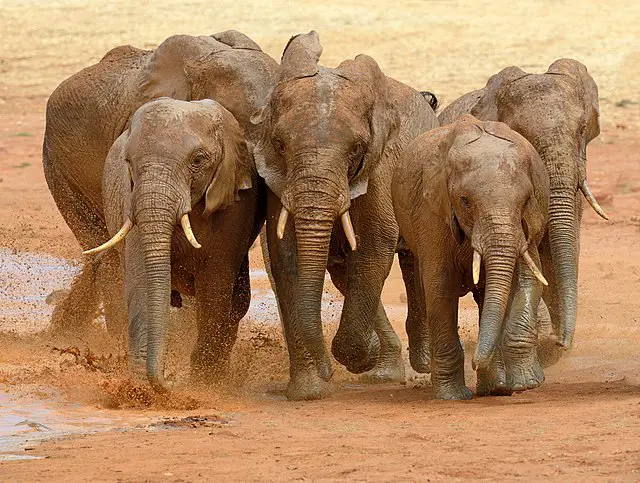Picture a vast, sunlit savannah where the ground trembles beneath the heavy steps of a family of elephants. These majestic creatures, with their gentle eyes and sweeping trunks, seem to embody strength and grace. But beneath their leathery hides lies something far more complex—an emotional depth rivaling that of humans.
From mourning the dead to celebrating births, elephants experience a spectrum of emotions, challenging long-held assumptions about animal cognition. Science now confirms what keen observers have long suspected: elephants feel deeply. But how do we know for sure? And what does this mean for the way we see animals?
Grieving Giants: Mourning the Dead
The image of an elephant caressing the bones of a fallen companion is hauntingly powerful. Elephants are known to return to the remains of deceased family members, gently touching skulls and tusks with their trunks. Researchers have observed these behaviors time and again, sparking debate over whether elephants truly grieve.
In Kenya’s Amboseli National Park, renowned elephant researcher Cynthia Moss witnessed a female elephant named Eleanor collapse and die. Over the next few days, elephants visited her body, nuzzling her and attempting to lift her. Even after scavengers had stripped away flesh, her bones were touched and examined. Such acts suggest mourning—an acknowledgment of loss.

The Science of Elephant Empathy
Elephants don’t just mourn—they comfort each other. A study published in the journal ‘PeerJ’ documented how elephants respond to distress. When one becomes anxious, others approach, touching them with their trunks and producing soothing rumbles. This behavior mirrors human consoling and highlights their social bonds.
Researchers believe this empathy stems from complex cognitive abilities. Elephants recognize themselves in mirrors—a rare feat among animals. This self-awareness hints at a deep understanding of others’ emotions.
Joy, Play, and Celebration
Elephants also experience joy. Young calves often romp and play, chasing birds and wrestling with siblings. In Botswana’s Chobe National Park, herds can be seen splashing in waterholes, spraying each other and trumpeting loudly. Such behaviors aren’t just instinct—they’re expressions of happiness.
The bonds between elephants are strong and long-lasting. Families remain together for decades, led by a wise matriarch. When reunited after separation, they greet each other with trumpets and affectionate touches, visibly excited.
A Lesson in Empathy: What Elephants Teach Us
Elephants show us that emotional complexity isn’t exclusive to humans. They remind us of the depth and breadth of animal consciousness. As their habitats shrink and poaching threats grow, recognizing their emotional world becomes crucial for conservation. Protecting elephants isn’t just about saving a species—it’s about preserving a profound connection to nature’s most empathetic giants.
Stay tuned as we delve deeper into the emotional lives of elephants, uncovering how their remarkable capacity for love, grief, and joy can inspire us all.

